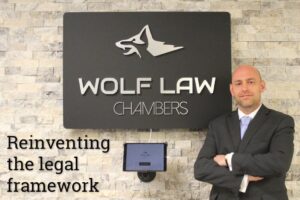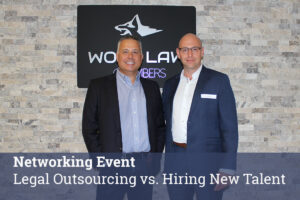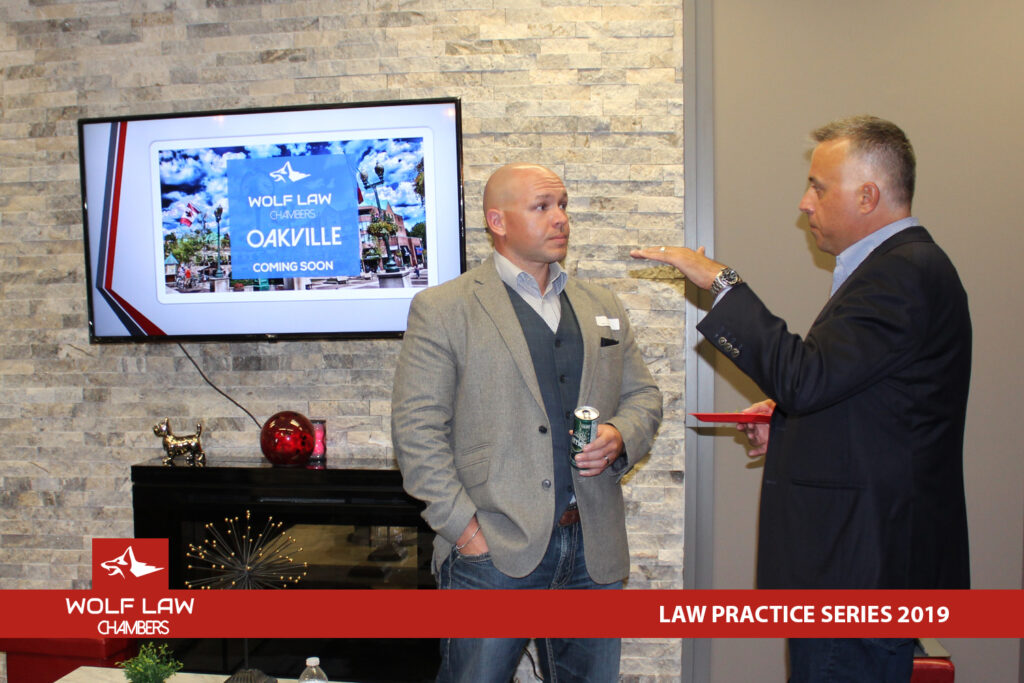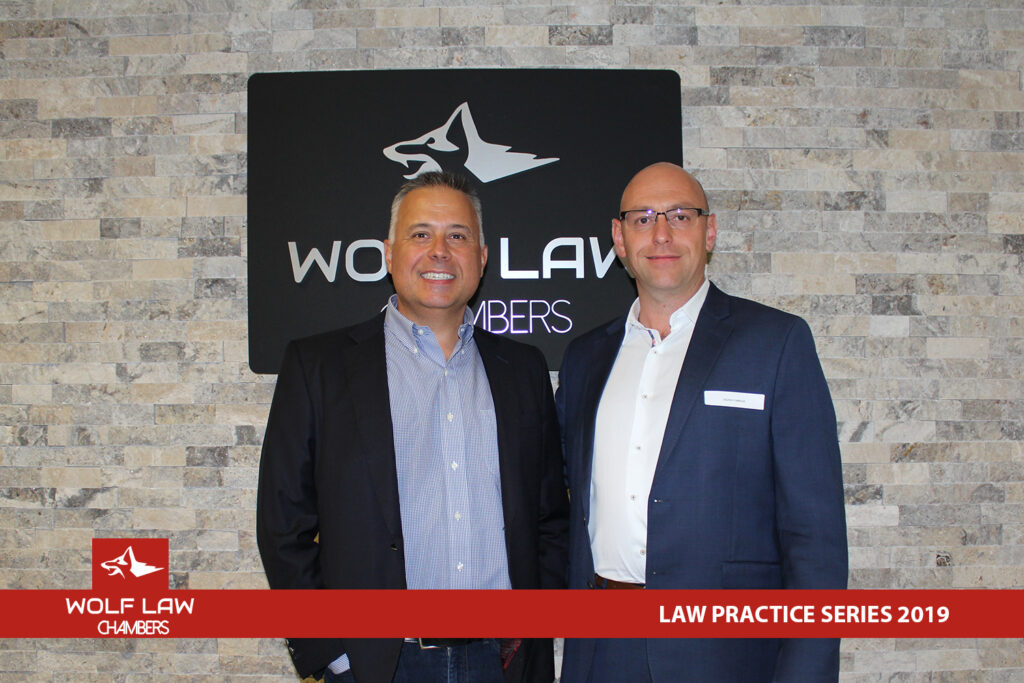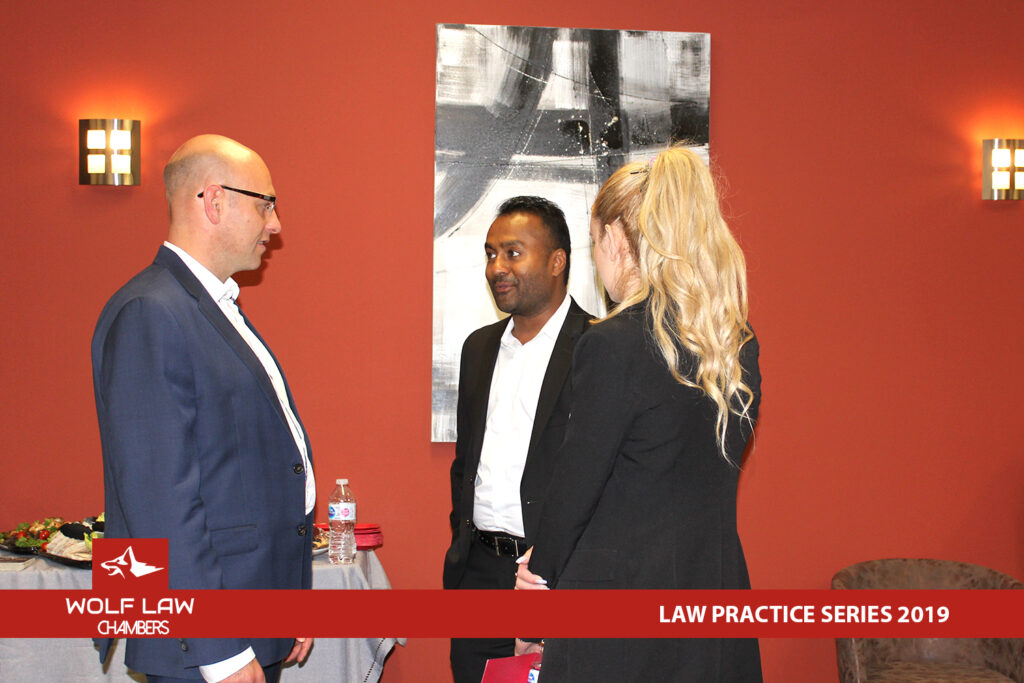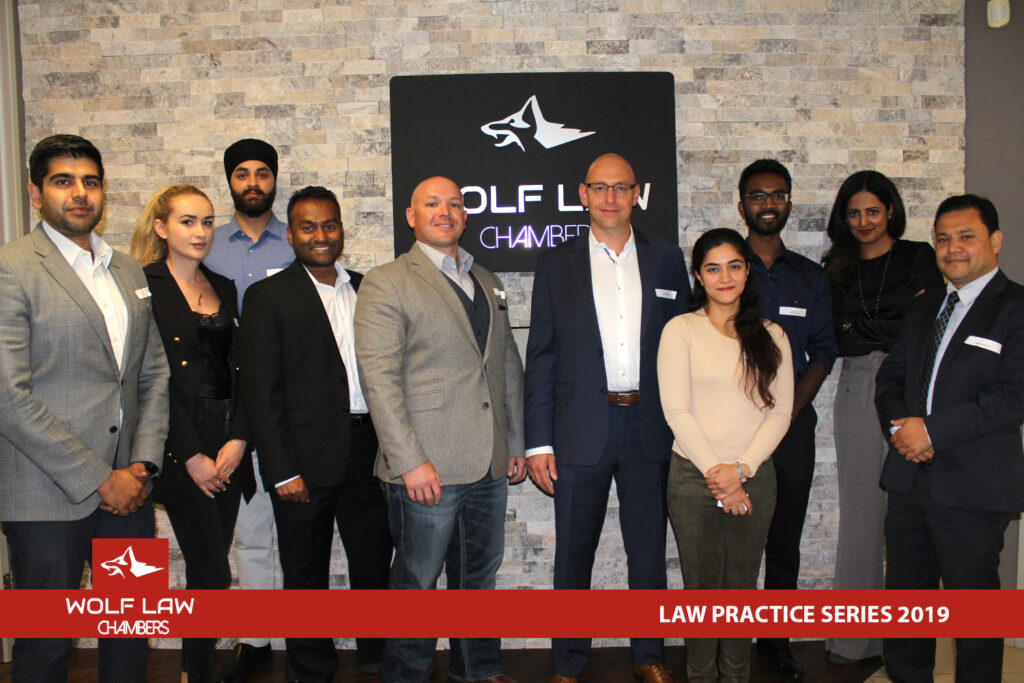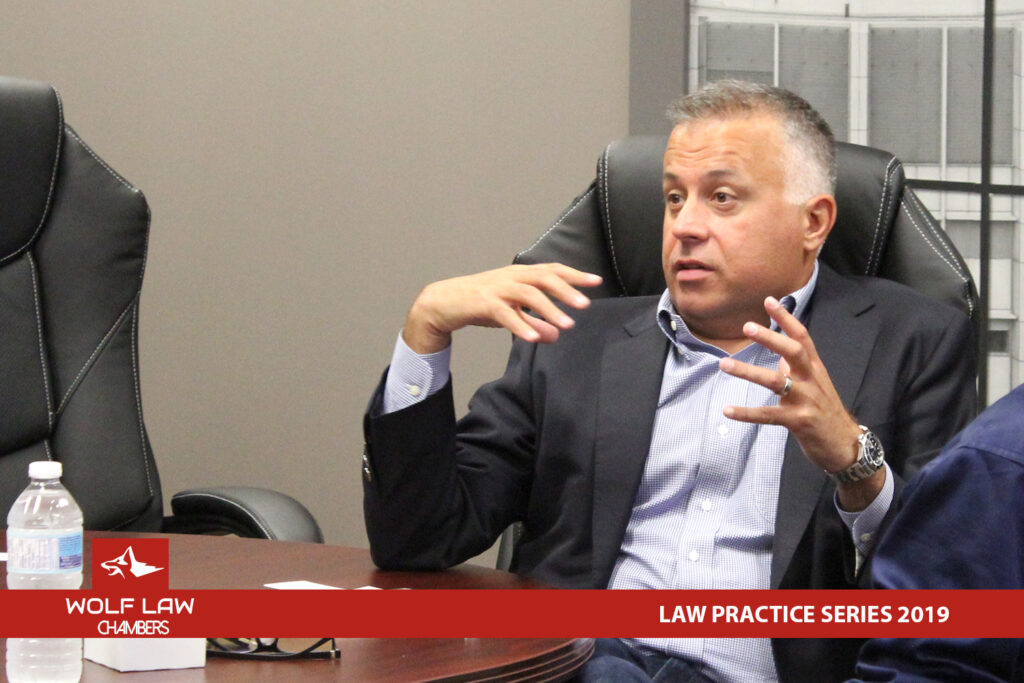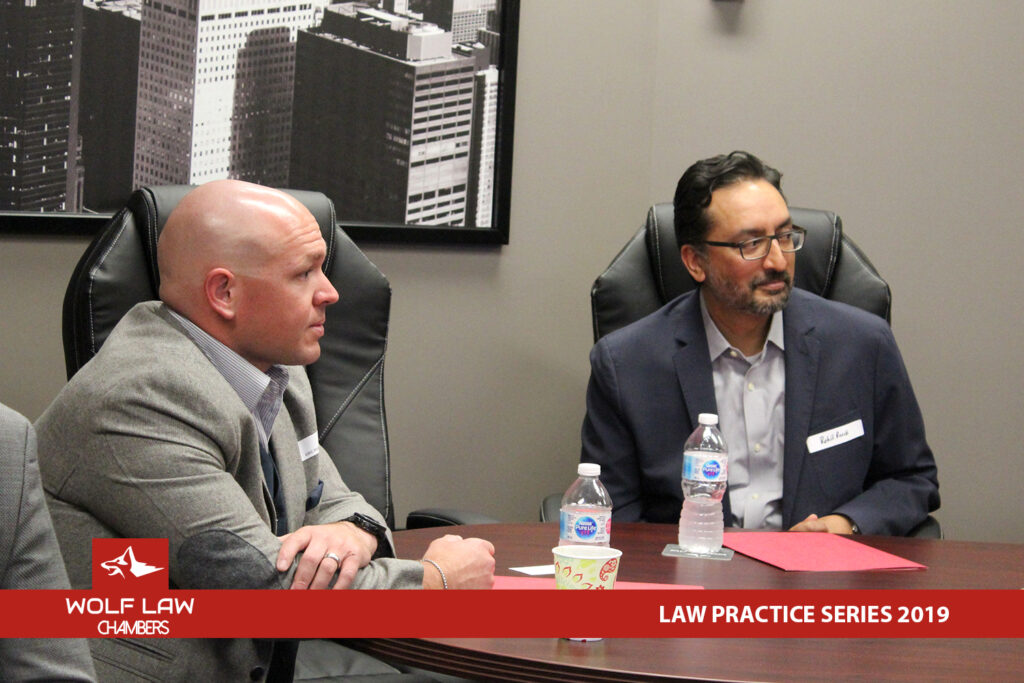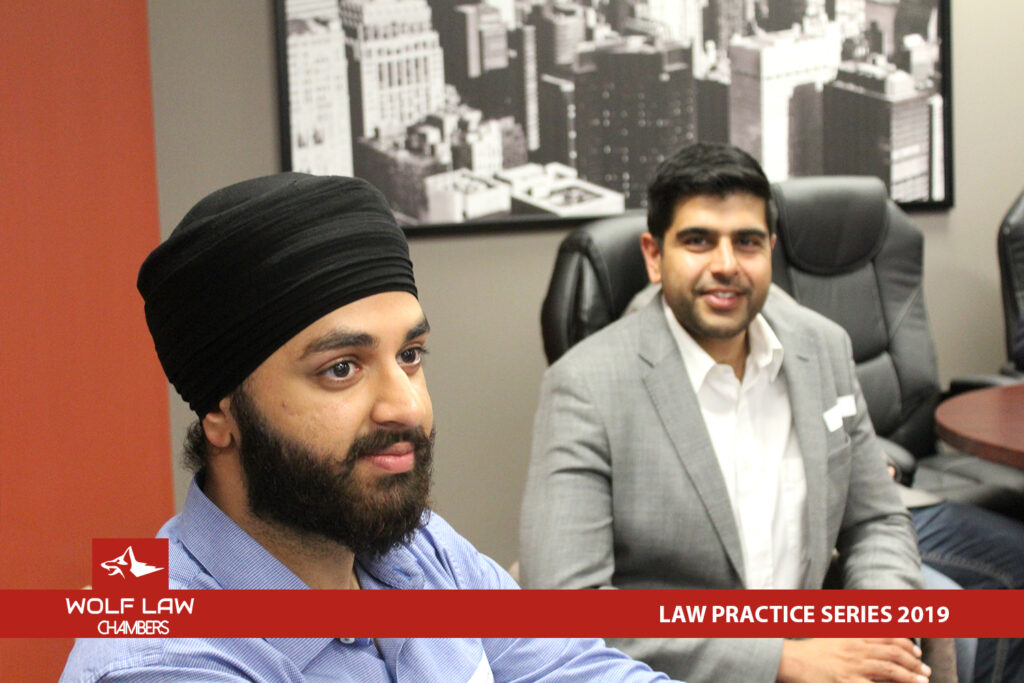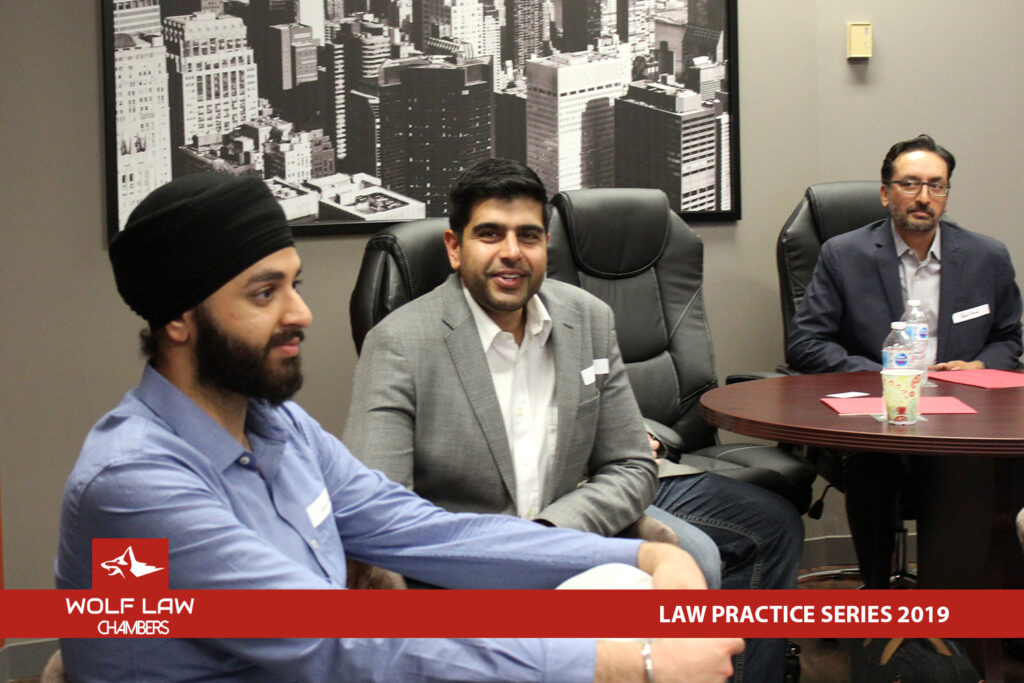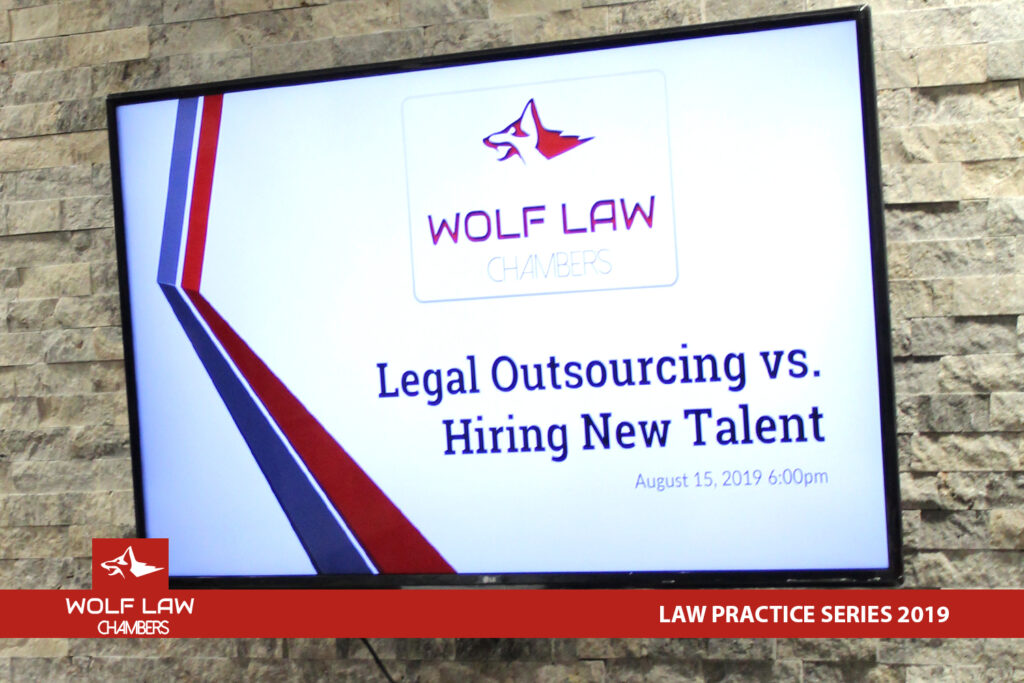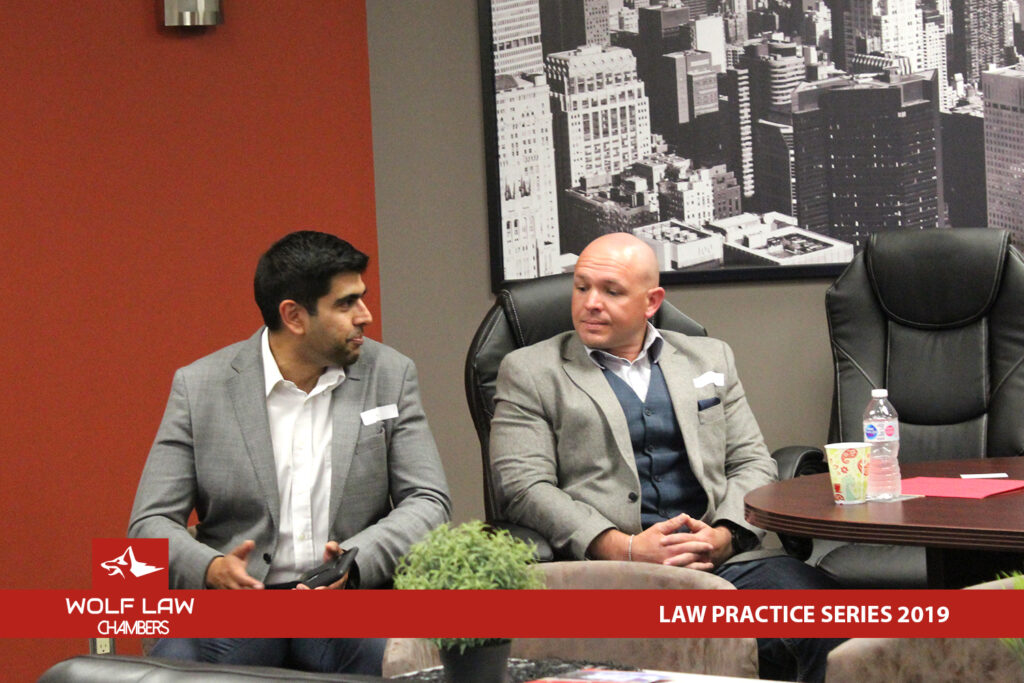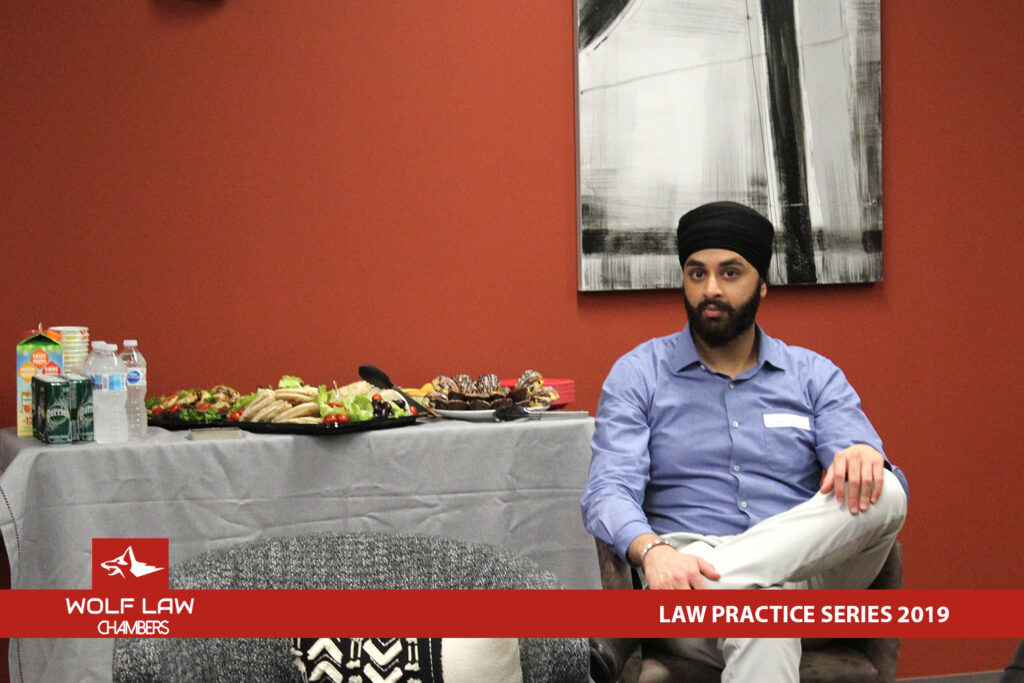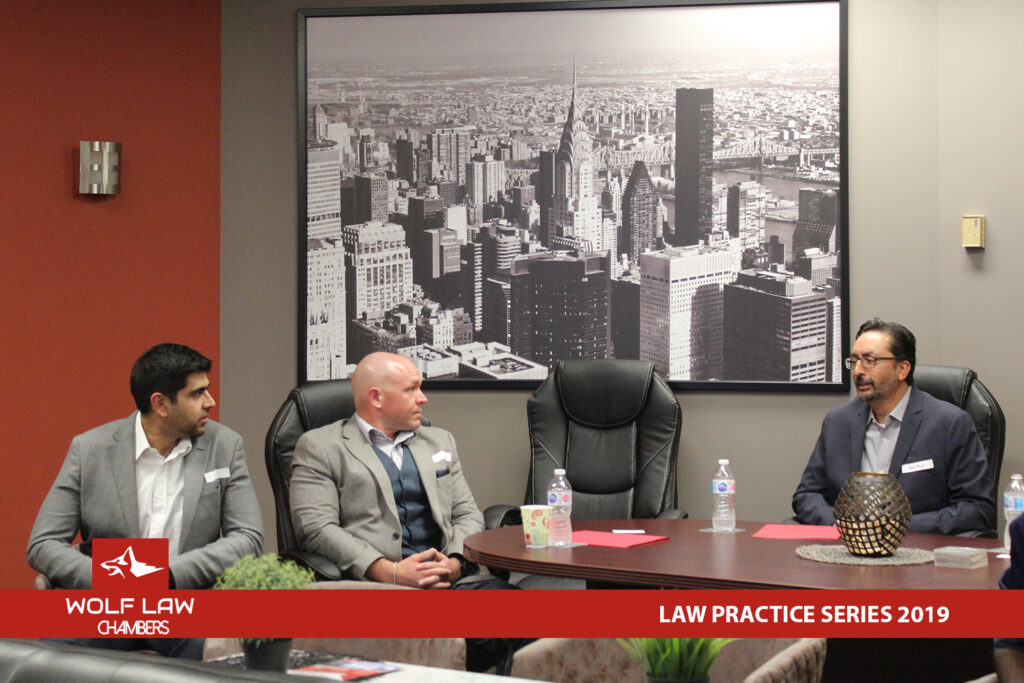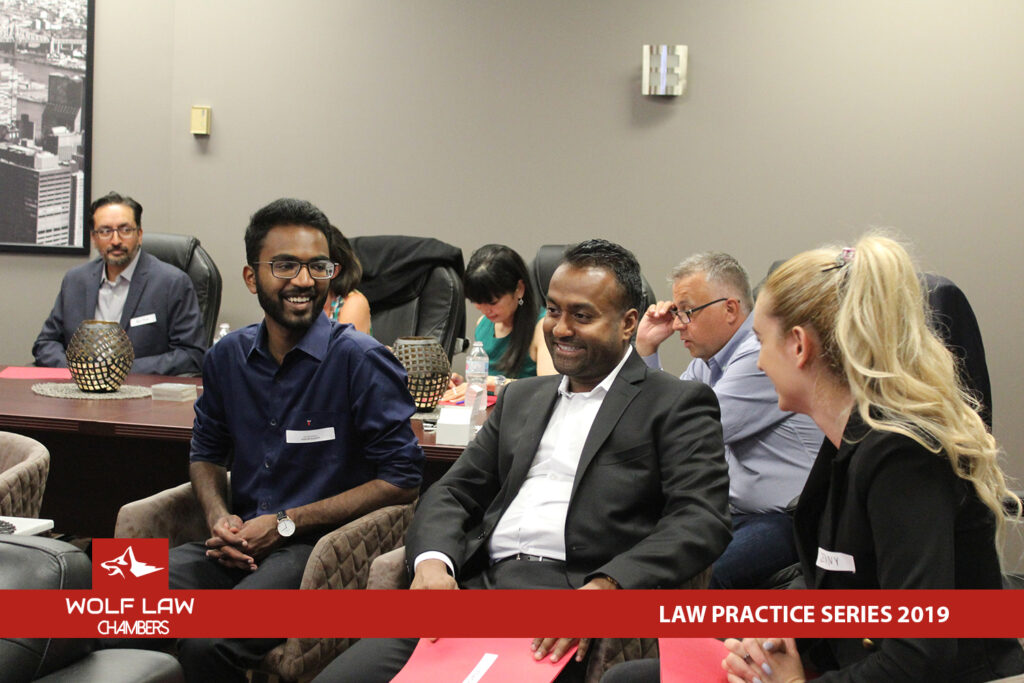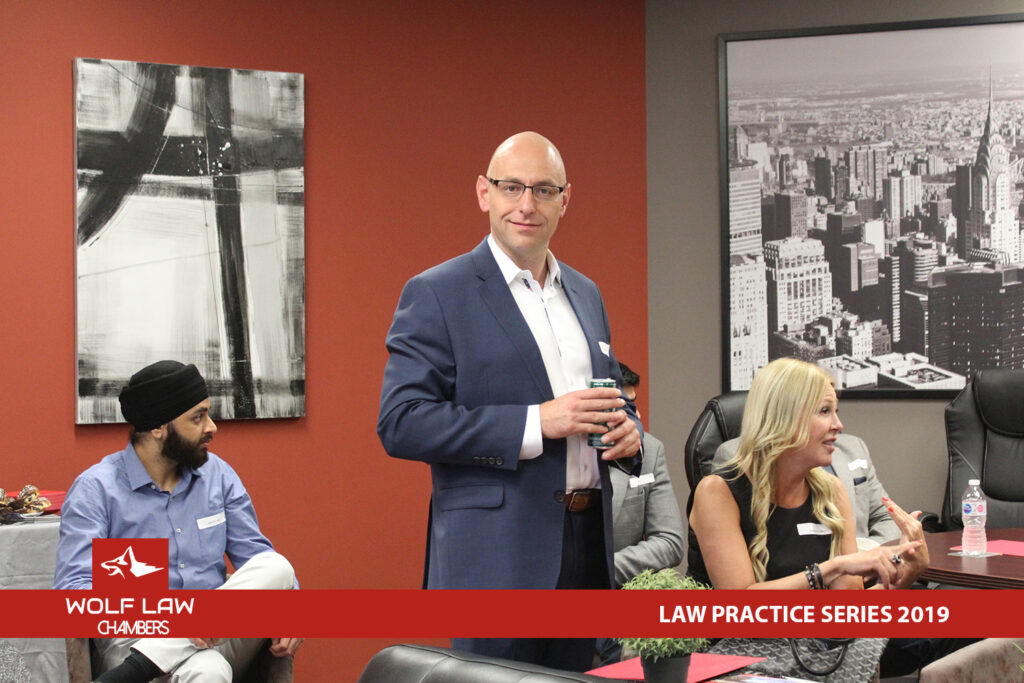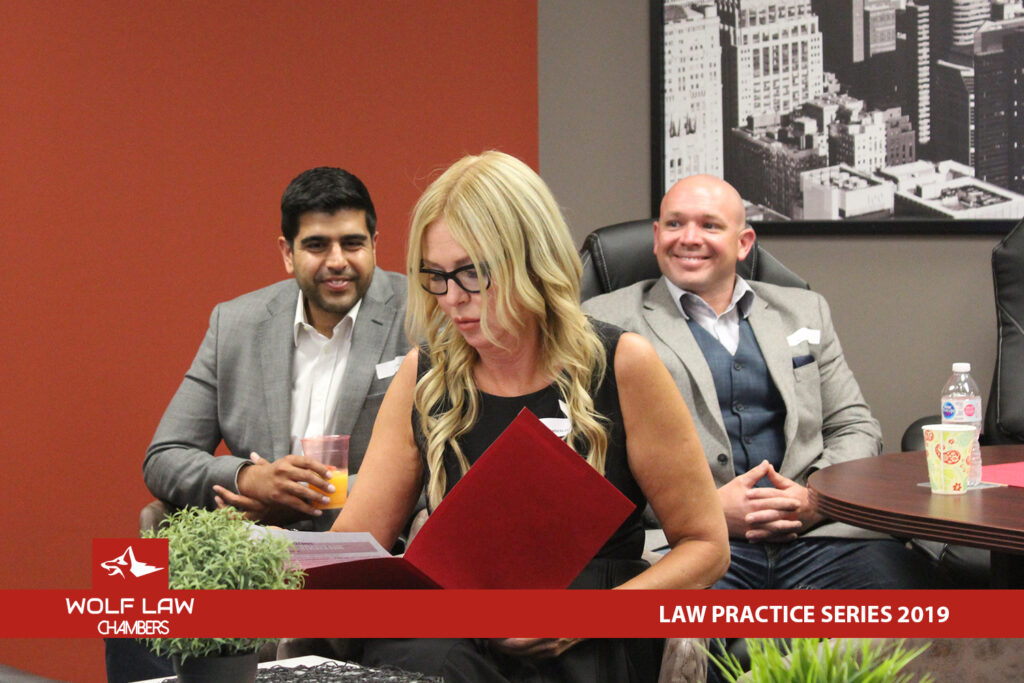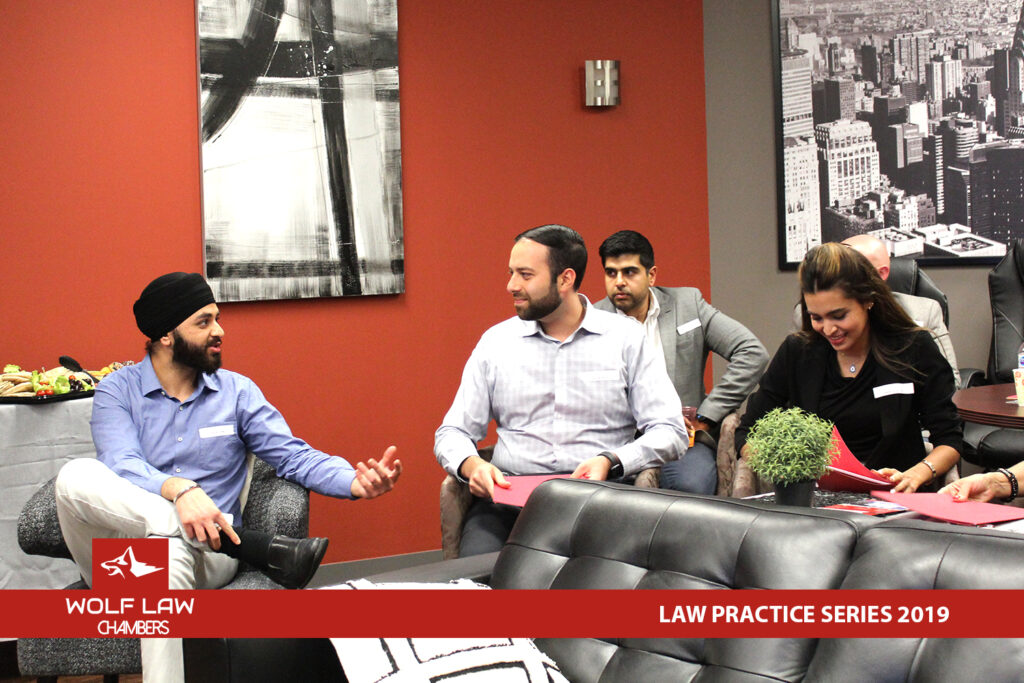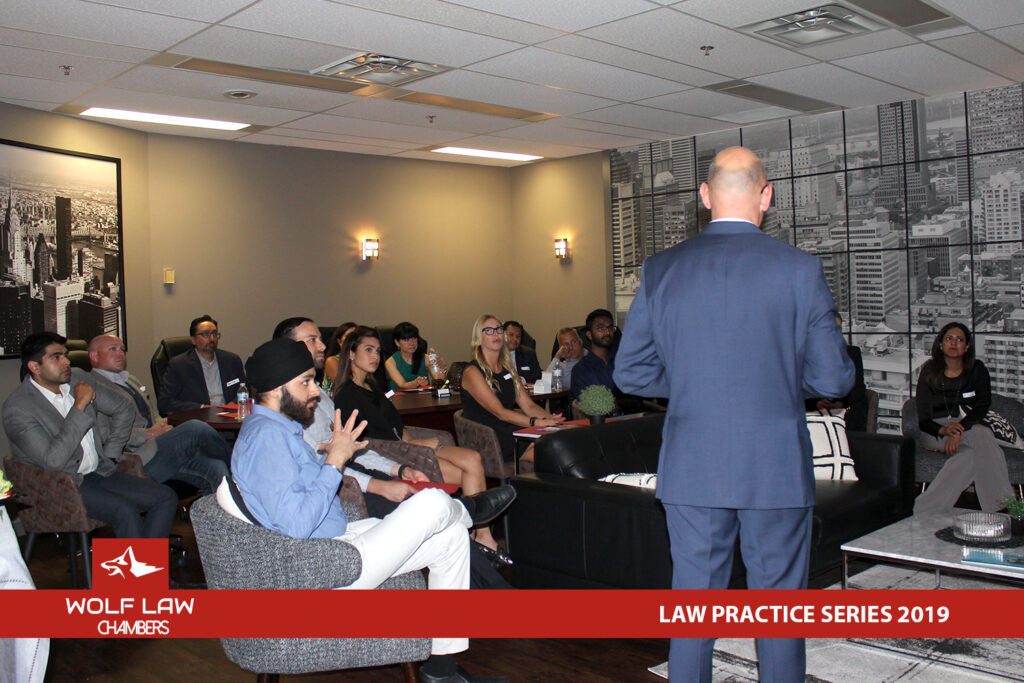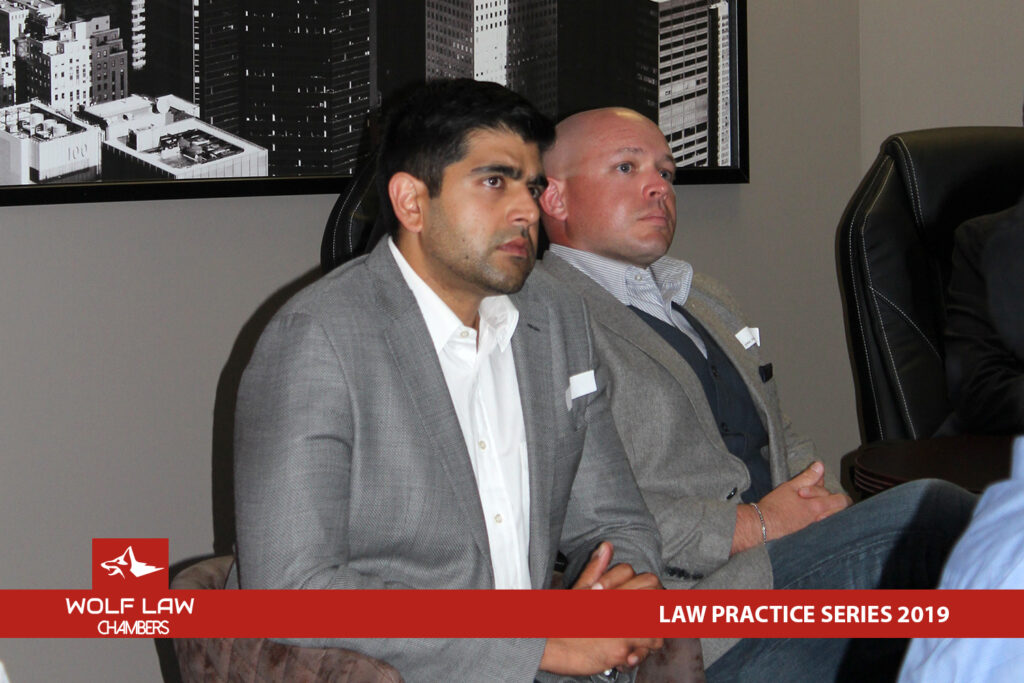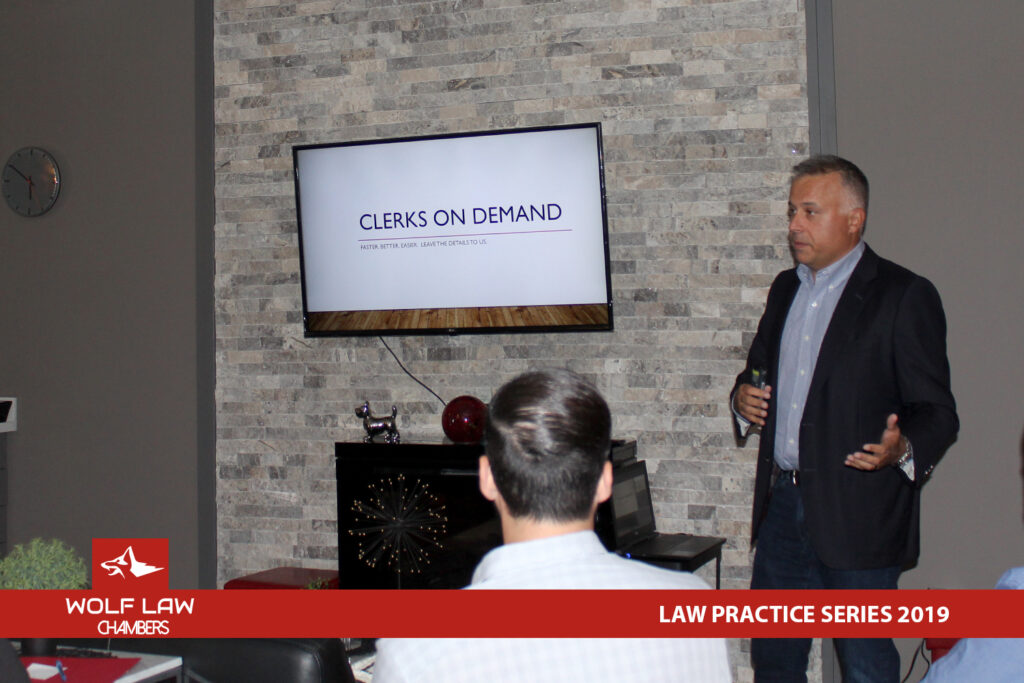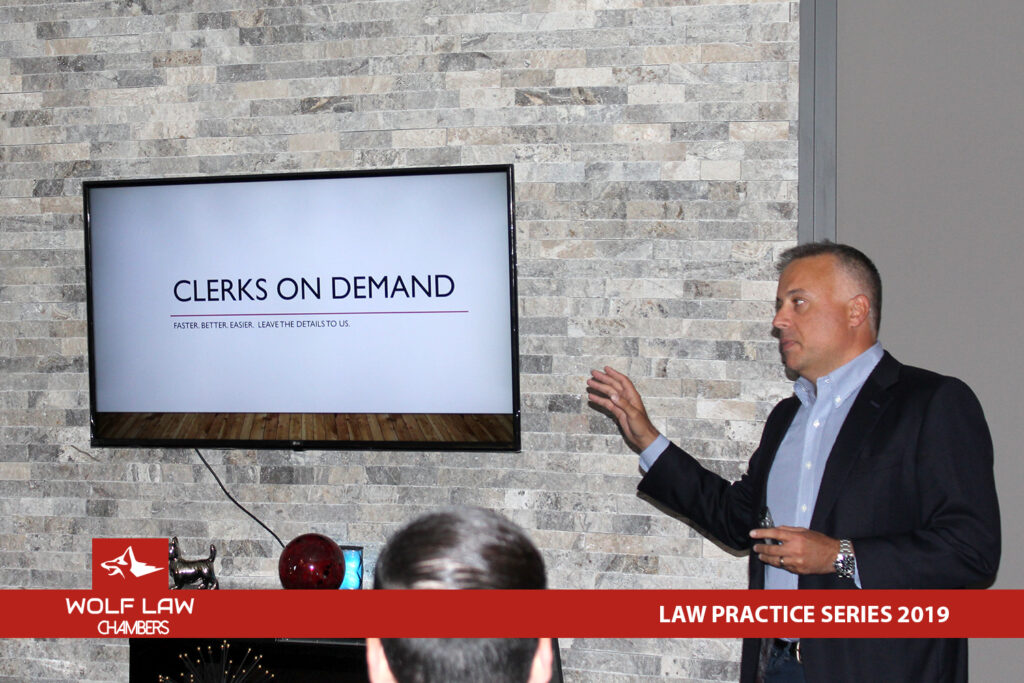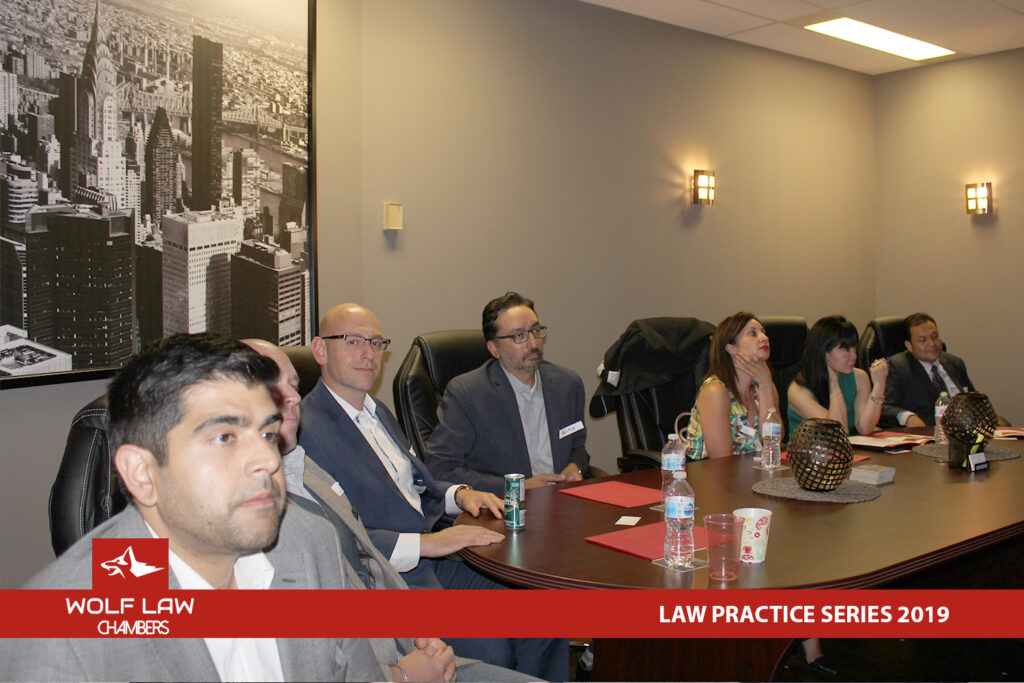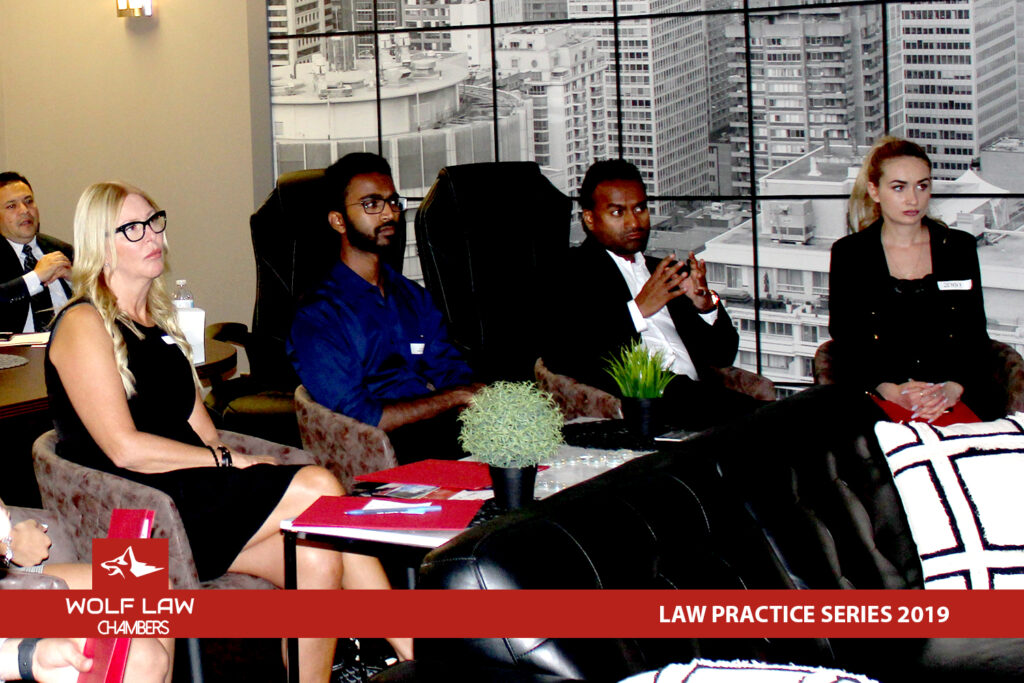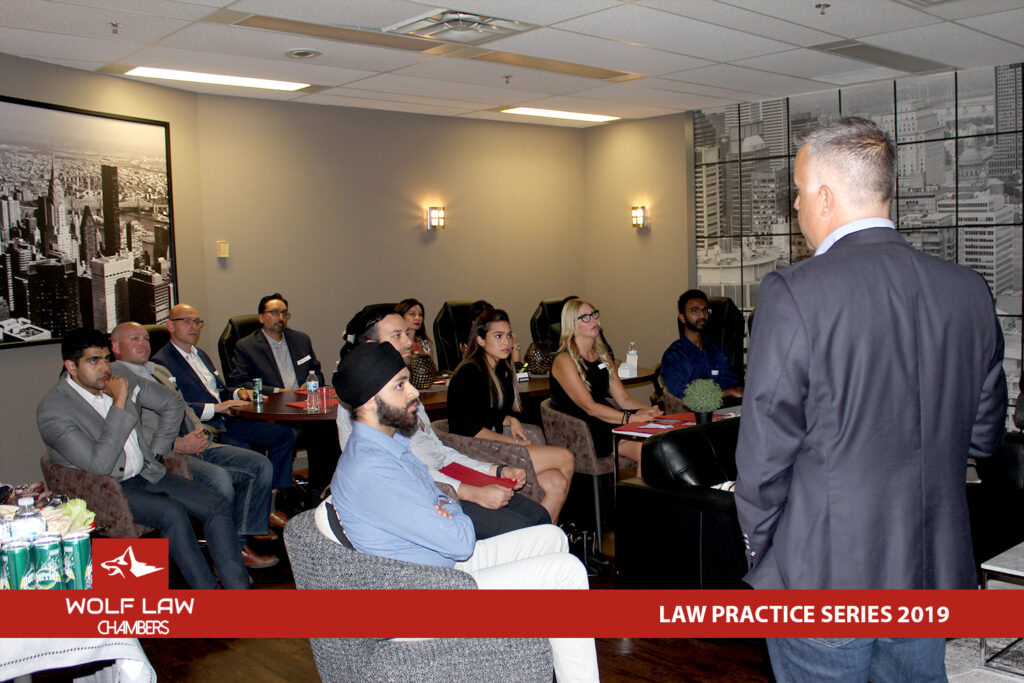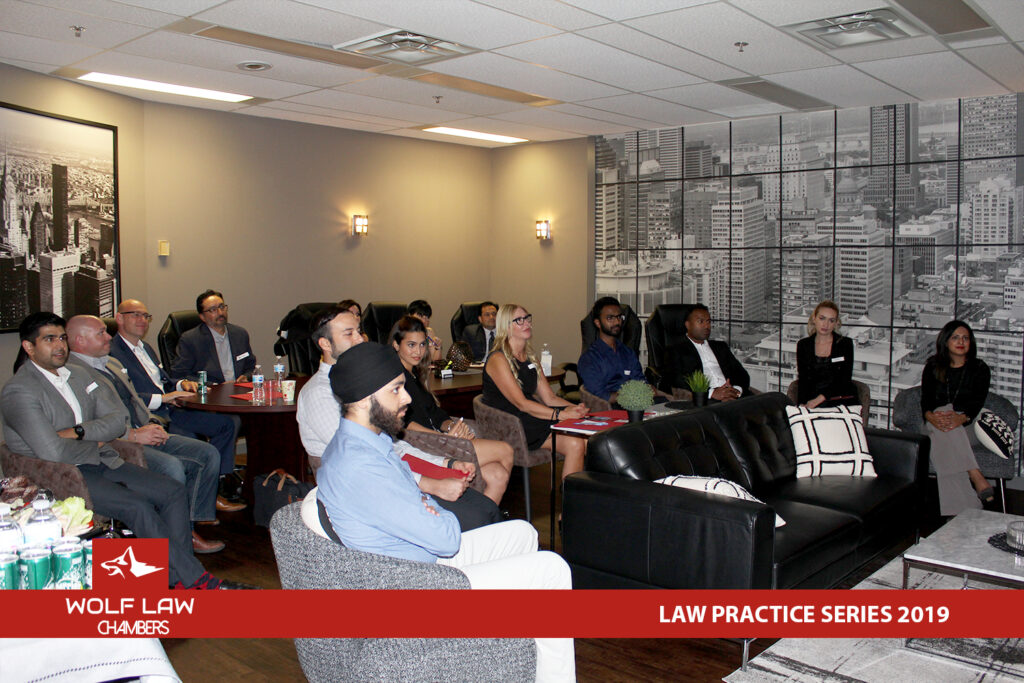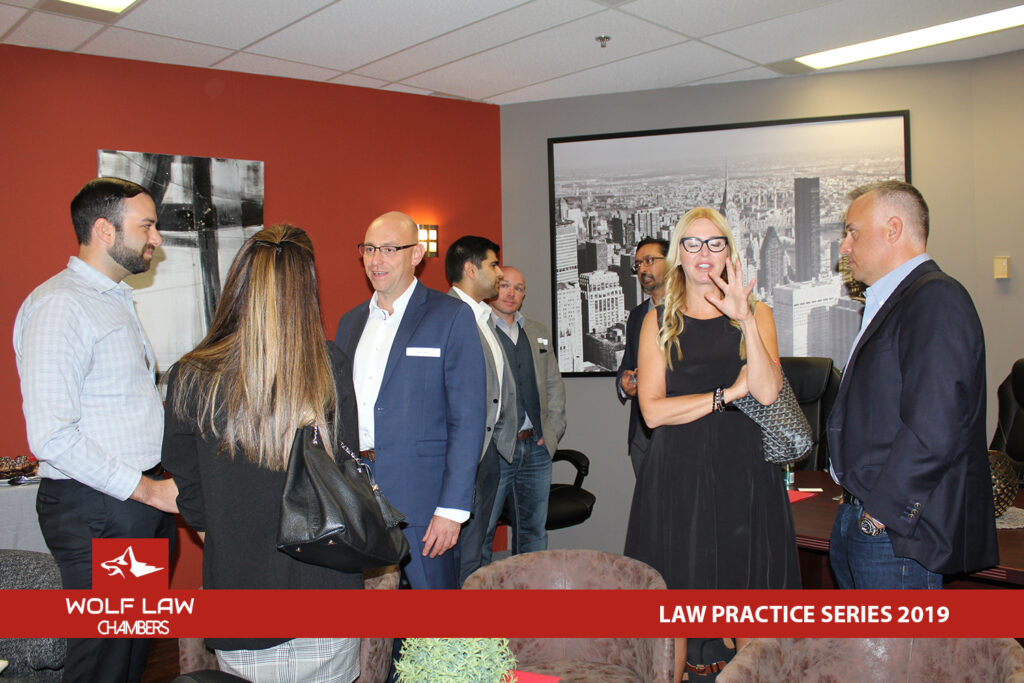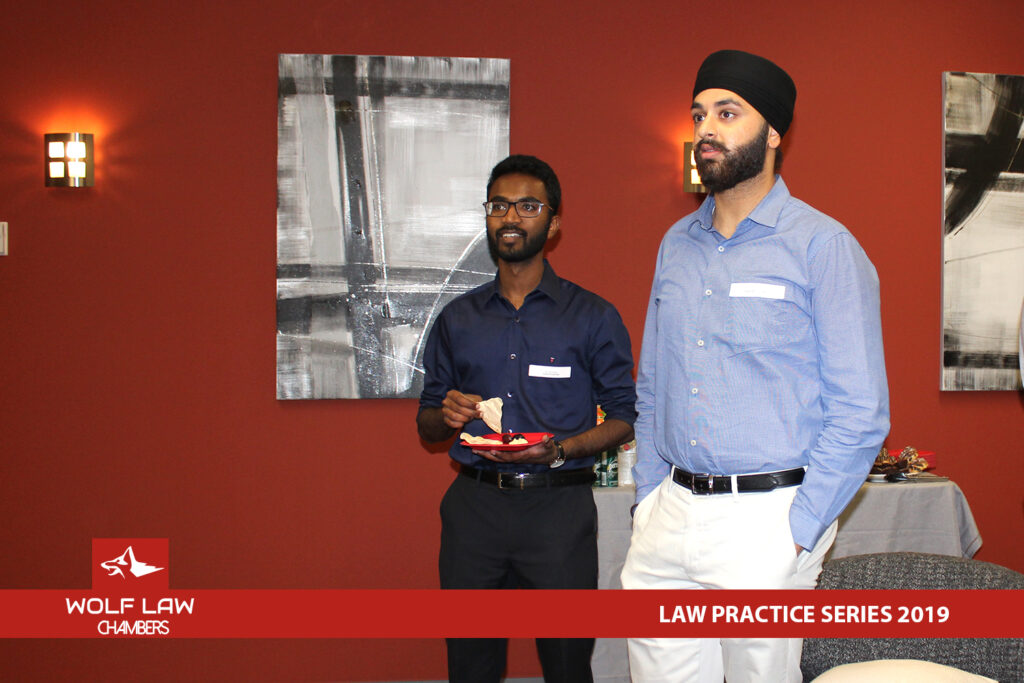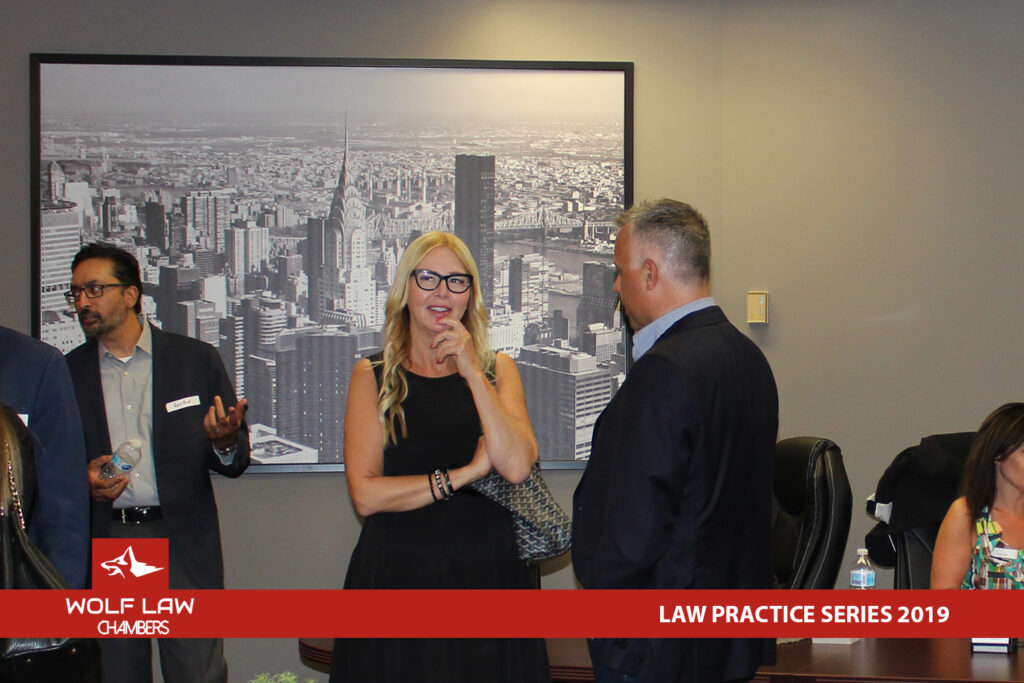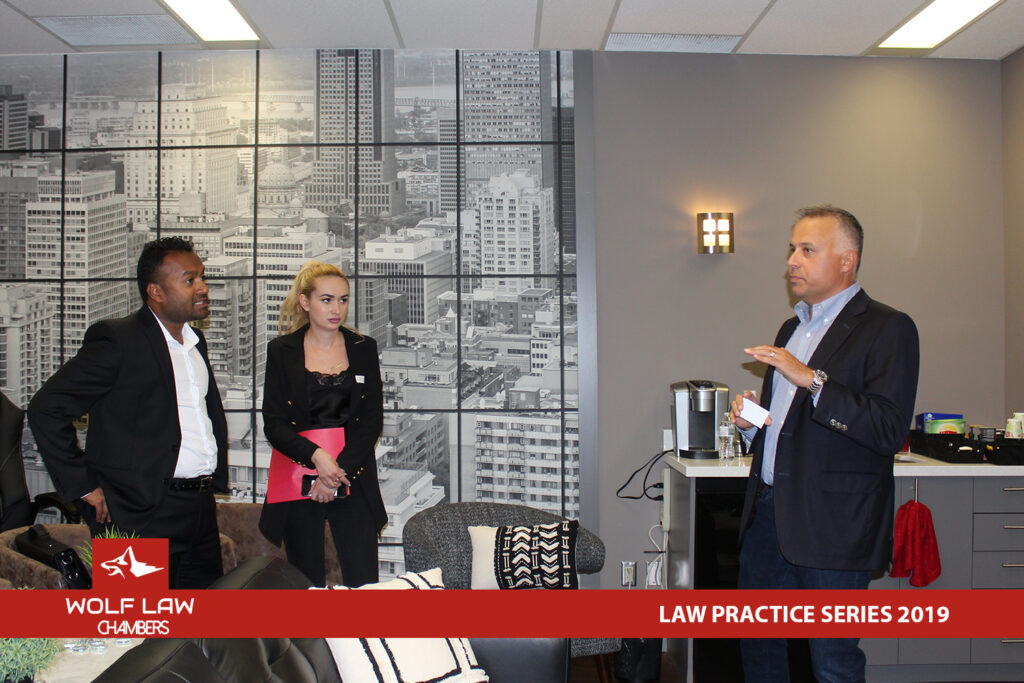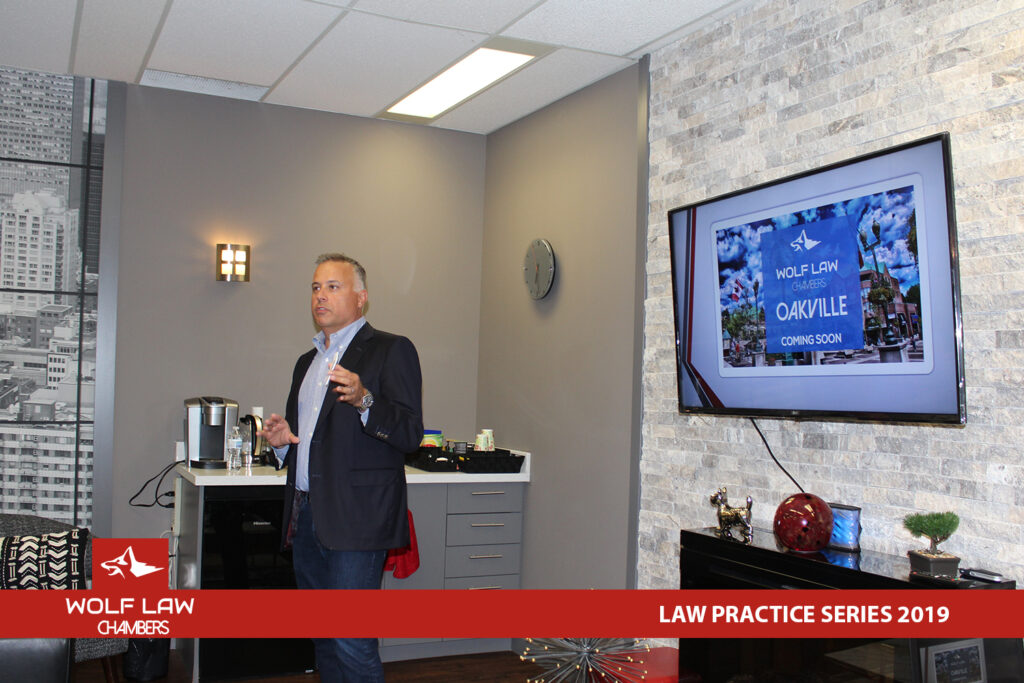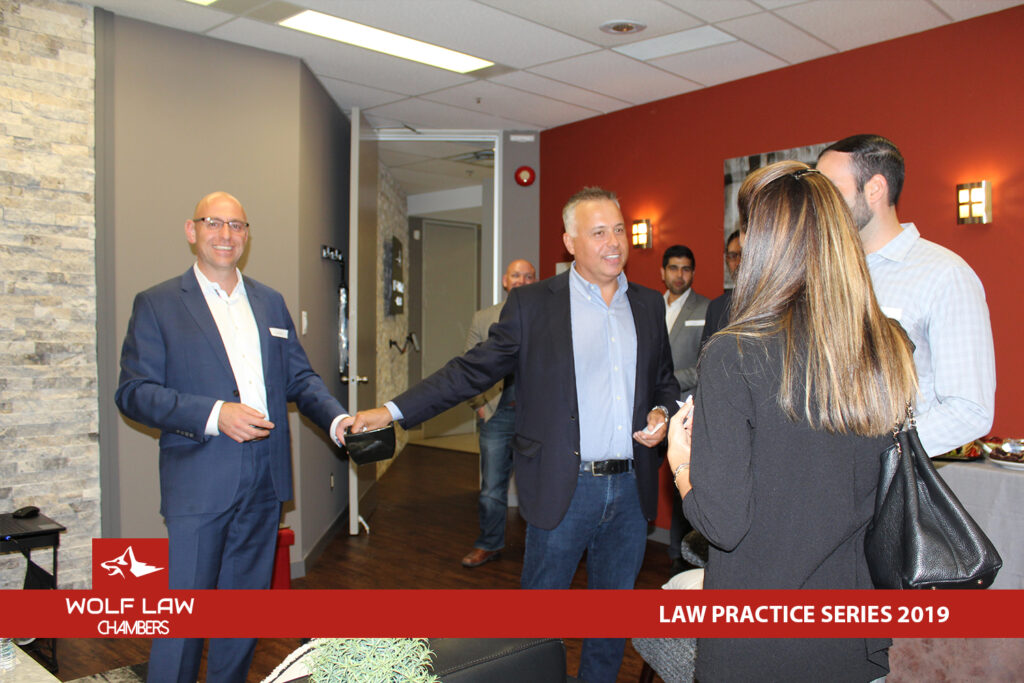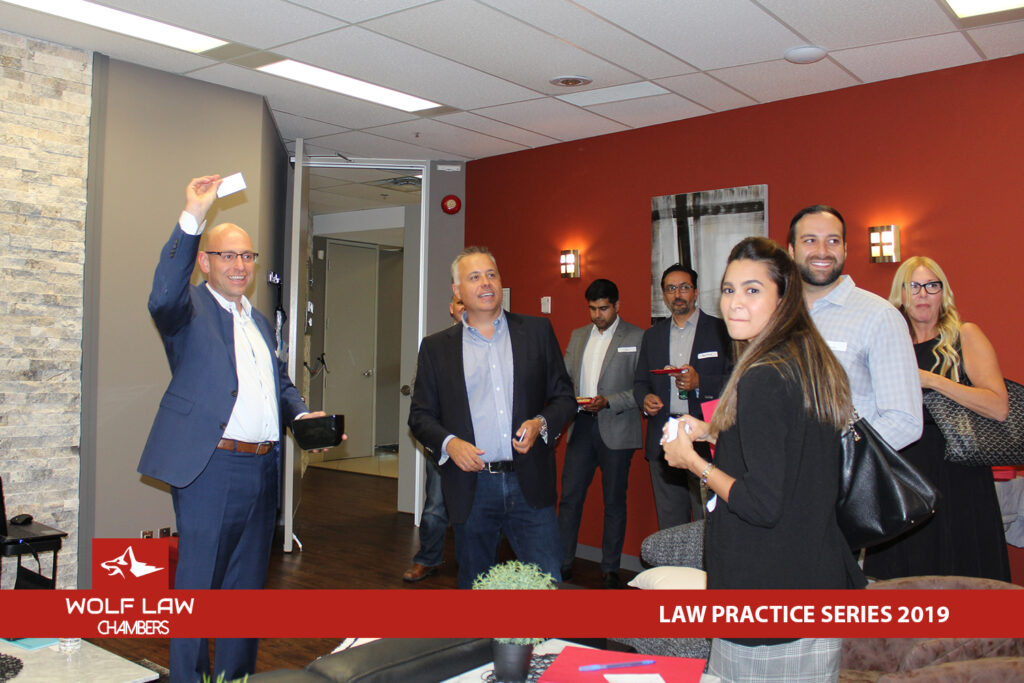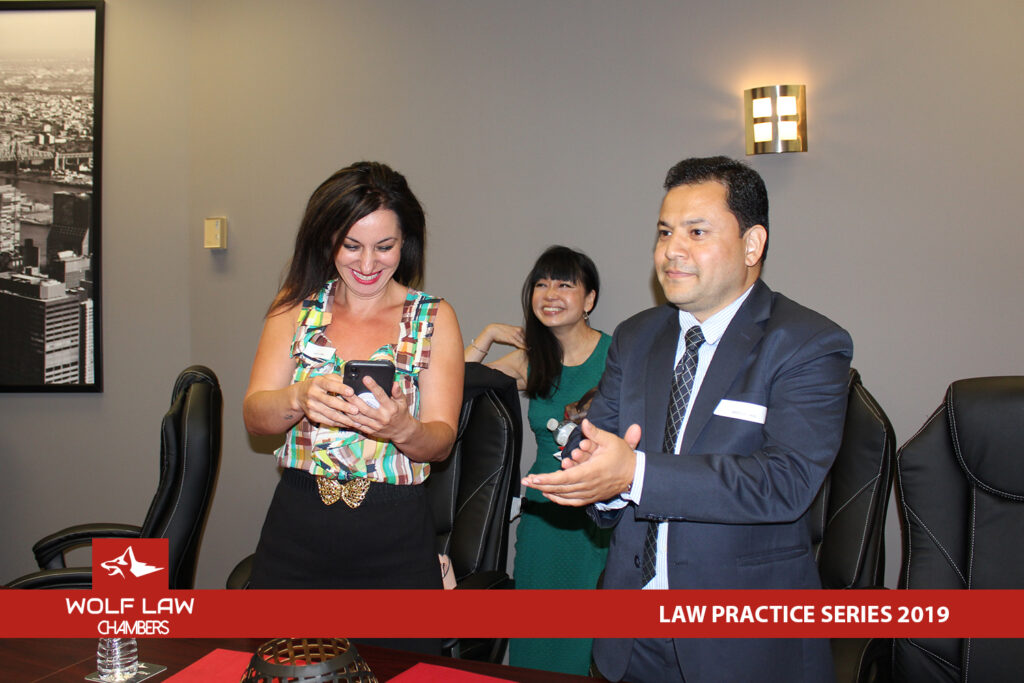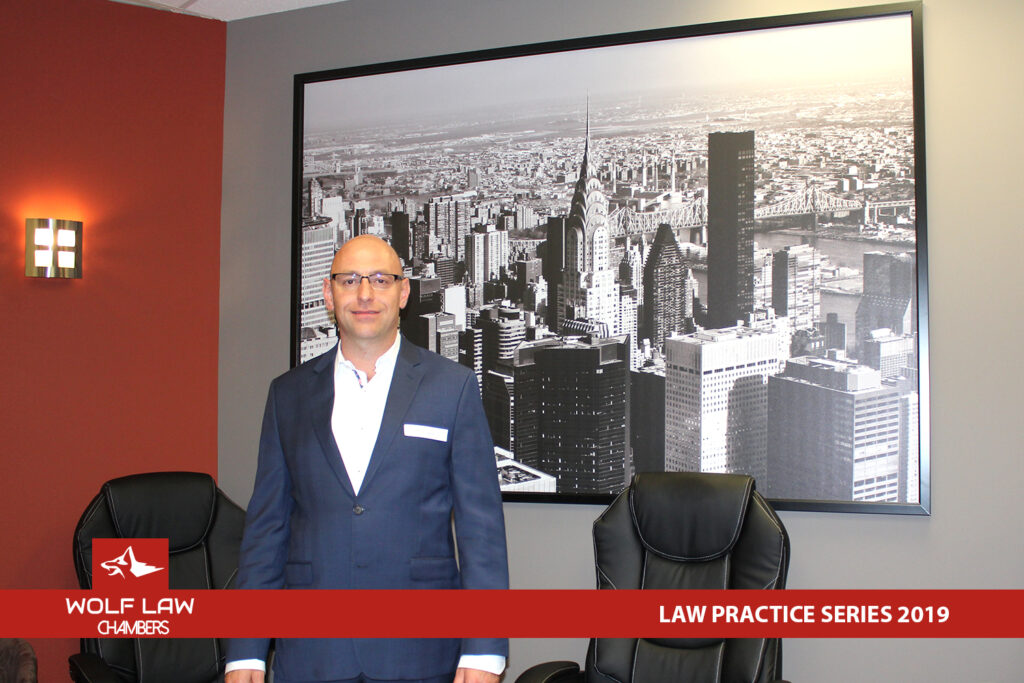LEGAL
Reinventing the legal framework
Dezso Farkas
The significance of a man’s prestige is a collective reflection of all his attributes. Dezso Farkas is a man of many attributes. Apart from being a law practitioner and an entrepreneur who helps start-ups, Dezso is responsible for the conception of Wolf Law Chambers. The chambers, described as a multi-disciplinary law practice, is an innovative approach to providing a workplace where legal professionals can seek support and resources, while maintaining their status as a singular entity.
Educational Background
Dezso graduated with a BA Honours degree from York University and then went on to earn his Master of Laws (LLM) degree (specializing in Corporate Governance) and a Juris Doctor (JD) degree, both from Osgoode Hall Law School, York University. Soon after he was called to the Bar and currently, he is licensed to practice as a Barrister & Solicitor in the Province of Ontario.
Apart from periodically visiting the courthouse, Dezso made time to publish several articles in the prestigious Delaware Journal of Corporate Law, Transnational Legal Theory Journal and the London Review of International Law. On a certain occasion Dezso also served with the Institute for Global Law and Policy at Harvard Law with his expertise on the legal side.
Professional Ventures
The scope of Dezso’s abilities is not just limited to law. On top of being a real-estate entrepreneur with considerable experience in the field, in the past Dezso has also acted as a director of the Reliant Gold Corp., a publicly traded junior mineral resources company.
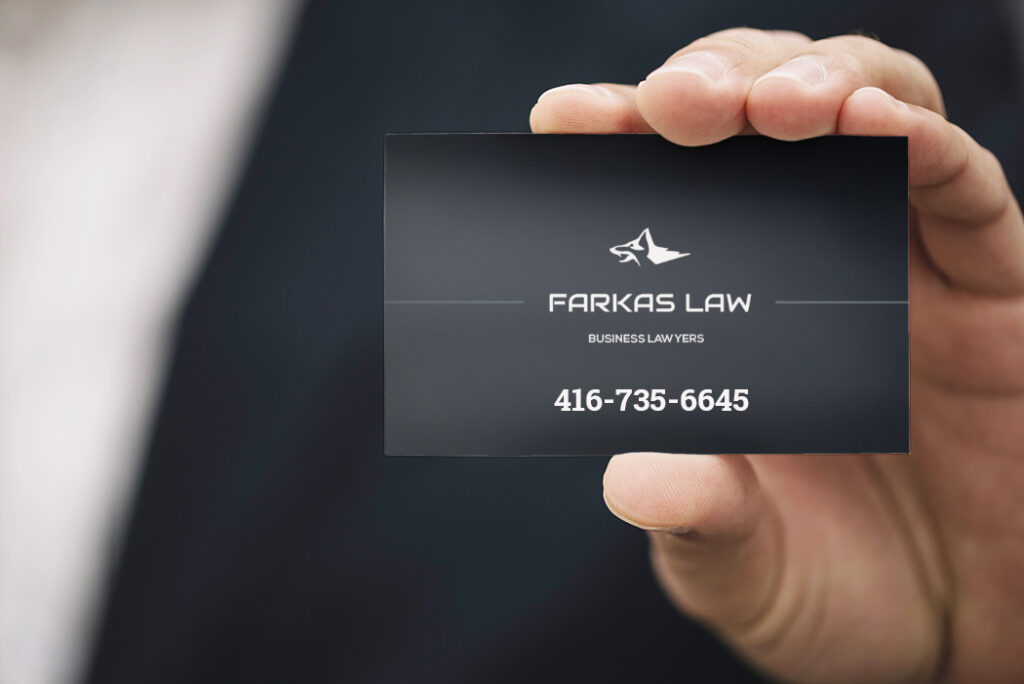
Farkas Law “Business Lawyers”, the independent law firm chaired by Dezso Farkas, caters to the needs of small and medium-sized business clients. The self-description of the firm is stated as a body of “Business Lawyer” with an aim to provide customized legal services, guidance and trusted advice for business ventures of all kinds. Currently the clientele of Farkas Law includes start-ups, commercial landlords, real-estate developers, manufacturing companies, non-profit organisations and small business owners. The firm acts as an external “in-house” corporate counsel to save their valuable resources and focusing them towards successful outcomes.
Dezso’s substantial history of merit is a result of his personal ideology which can be better expressed by himself:
I believe in continuous professional growth and I am committed to gaining new knowledge and experience to better serve the needs of my clients.
Dezso Farkas
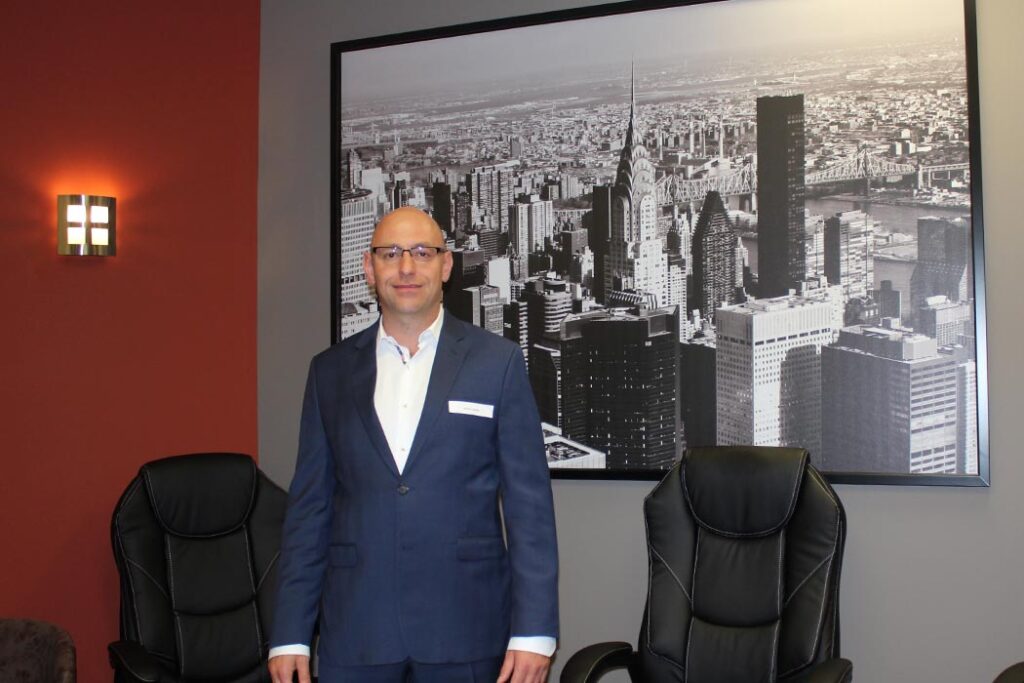
Vision
Ideally lawyers are intended to be a means of resolving problems for their clients. Sadly, not all lawyers are attuned to the needs of their clients. For Dezso Farkas, the motivation to become a lawyer came from his own unsavory past experience. As a young entrepreneur, Deszo encountered some obstacles and to resolve them he obviously pursued legal assistance; unfortunately, he got saddled with a ‘disengaged’ lawyer. At this point Dezso realized how detached lawyers are to the ideology of young entrepreneurs. Back then, if he had been a lawyer, he definitely could have handled his case more efficiently, he realized that going into law practice could be a real opportunity for him to help people.
Young entrepreneurs have no idea of the trouble they might get into when they are starting out. Its not possible for them to know everything about the line of commerce they are about to enter on their own. The consequences of their natural ignorance can sometimes be dire. Consequently, it is more complicated to undo a problematic situation than to avoid it in the first place.
Nevertheless, if an entrepreneur seeks the right advice from the very beginning, there’s no reason for them to get into trouble. According to Dezso, the biggest complaint he hears from his clients is that other lawyers don’t understand their clients’ businesses. Dezso on the other hand wants to understand his clients’ businesses and perspectives. He has a desire to leave people better than when they first came to him seeking a solution to their problems. In his own words, Dezso wants to be ‘Their Trusted Advisor’.
Wolf Law Chambers

Not all lawyers have the innate ability and the right personality to make it as sole practitioners. Lawyers who possess such qualities cannot work under others for long and can only thrive when they work for themselves. However, when these lawyers enter the domain of sole practice, they face a multitude of unique challenges they are not ready for. Support is non-existent as a result of their isolation and limited networking opportunities. The Law Society provides certain resources, to help solo firms stay compliant, but they have no avenue of providing any personalized advice in light of the ever-evolving business landscape to individual lawyers. In terms of modern-day workspace flexibility, the options for a lawyer on his own are very limited. Sometimes it becomes practically impossible for them to go out and search for law-based developmental resources to further their practice.
To Dezso the idea behind the creation of Wolf Law Chambers came as a solution to all the problems discussed above, which are being faced by lawyers. The services available at Wolf Law Chambers are uniquely targeted for law professionals, in order to allow them to grow personally in their sphere. The networking opportunities at Wolf Law Chambers are incredibly advantageous for sole practitioners. All the available resources, connections and events, allows lawyers to seek counsel from others in their profession, without any prejudice and with the purpose of benefiting each other. All of this is being carried out by lawyers at Wolf Law Chambers, while retaining their status as owners of their own law firms.
All lawyers should seek every opportunity they can to enhance their practice.
Dezso Farkas
Future
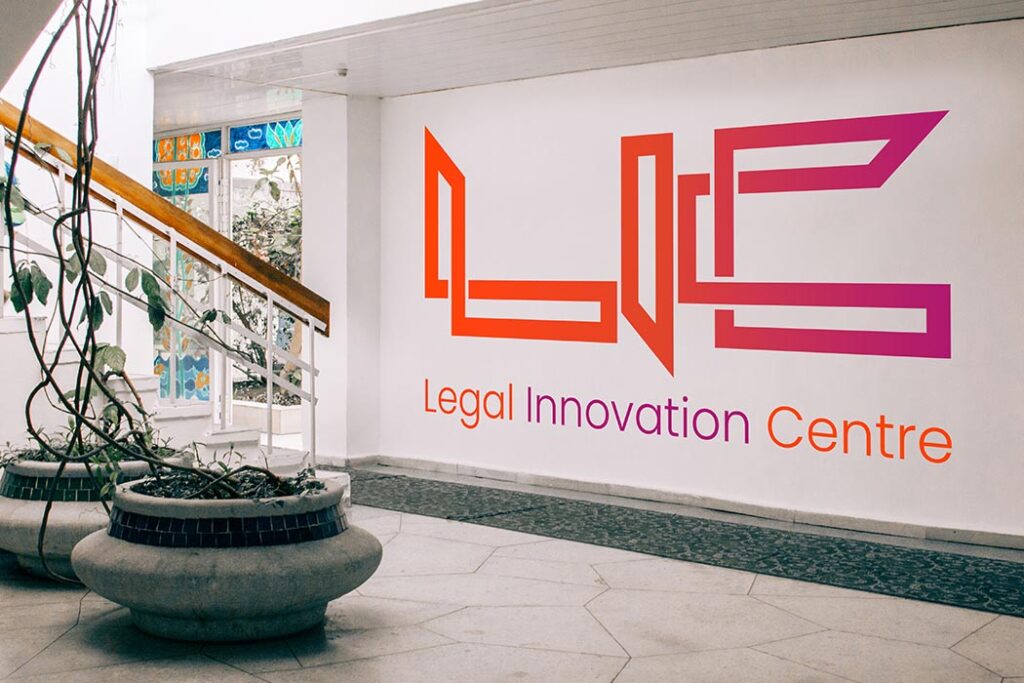
For Dezso Farkas, the future is just as promising as his present. He’s already planning to launch his upcoming project; the Legal Innovation Centre. Legal Innovation Centre will act as a ‘technology incubator’ to mentor start-ups in areas of legal research and development. According to Dezso, currently technology start-ups in the GTA West area are facing many challenges. There is a definite need for a facility like Legal Innovation Centre. The center will alleviate issues using their 3-step assistance plan; finding funding programs, providing a collaborative space and introducing start-ups to an already established network of industry experts. Legal Innovation Centre will focus resources on technological innovations which aim to shape the legal industry.
Networking Event – Legal Outsourcing vs. Hiring New Talent
Thank you to our fellow sole practitioners, the marvellous Peter Carayiannis from Conduit Law, and most welcomed guests for joining us on Thursday, August 15th, 2019 at Wolf Law Chambers. The topic of discussion for our event was the practicality that lies in outsourcing legal work in comparison to hiring new talent. Initially, sole practitioner, Dezso Farkas, of Farkas Legal Professional Corporation, spoke on the misconceptions in the legal field about outsourcing tasks to staff or legal clerks.
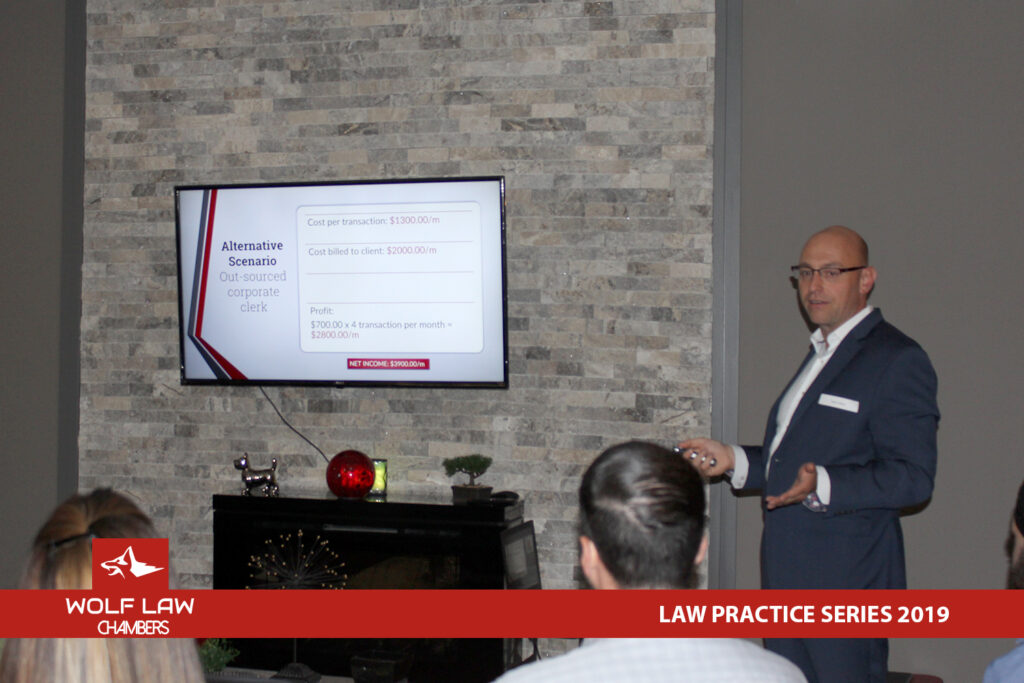
He explained how sole practitioners have a false perception that entails them carrying out every task that is part of the profession. Doing so, takes up a significant portion of their day and they are left with little to no time for billing clients. Mr. Farkas used accurate figures and analysis to depict how hours spent on practice management can be outsourced to staff and/or legal clerks to spend more time on actual legal work that can be billed. This leaves room to yield higher returns immediately, and is significantly compounded over longer durations of time. Legal outsourcing may seem like a discouraging practice as one has to shell money out of their pocket at first, but the time left to actually work on files and bill clients summons more profits for legal professionals.
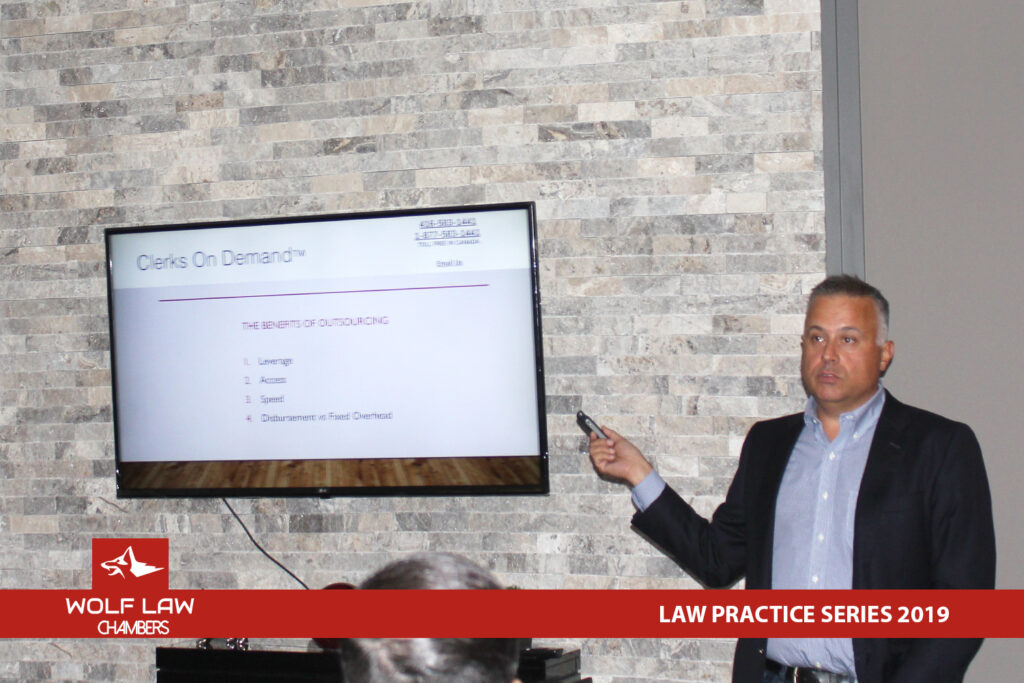
Peter Carayiannis from Conduit Law and Clerks on Demand outlined the many advantages legal outsourcing can have on one’s legal practice. He explained the differences between hiring new talent and outsourcing tasks to a company like Clerks on Demand. Essentially, hiring new talent thoroughly involves a recruitment process, training that has to be given, dealing with employee needs, and the constant thought of an employee leaving, leading to the whole process occurring again. Legal outsourcing, on the contrary, encompasses the passing of particular tasks to a professional and certified legal clerk, who is capable/experienced enough to complete assignments on their own. They can even be hired for a particular task or a specific period of time, allowing sole practitioners to leverage their time accordingly. Lawyers can then apply themselves to other facets of their practice, which in turn, allows for a yield of more returns. Peter brought up an interesting point during his presentation. He insisted that the audience understand the practicality behind outsourcing certain tasks of their legal practice. If a lawyer is not serving their client’s needs by performing a certain task, it should be outsourced to a legal clerk who can take care of it, while the lawyer works on more important matters, that serve the client’s legal needs directly.
Many of the sole practitioners present at the event saw the immediate benefits from outsourcing various areas of their practice to staff or legal clerks, and by doing so, being able to better focus and serve client needs. Some lawyers even noted the benefit in taking on more tasks than they would normally be able to handle by simply hiring clerks. Peter’s company, Clerks on Demand, allows lawyers to do exactly that. They can hire clerks at any time to assign tasks that they may not want to carry out and/or have the resources/time to complete. They would still be able to supervise all operations without having to indulge completely. With that said, any aspect of legal practice that does not serve the purpose of going to law school and receiving a legal education, can be contracted out, allowing lawyers to leverage their time accordingly.
A workspace designed to provide sole practitioners many opportunities to leverage their time efficiently is Wolf Law Chambers. The Wolf Law Chambers team incorporates innovative technological practices in their office to allow for rapid communication between lawyers, staff, and clientele. They also offer many services to sole practitioners deciding to join them, such as easily accessible office coordinators, marketing specialists, and process servers. These individuals are staffed to allow lawyers within the chamber to focus on what really matters: serving their client’s needs and executing the legal work that they specialize in.
We loved the turnout for the event and hope to continue seeing both familiar and new faces for the future. We have a workshop coming up again on Tuesday, August 27th, 2019 from 6-9 P.M. with guest speaker, Humza Adam of HFactor Solutions. Humza will be providing business development and marketing strategies for both lawyers and paralegals. We hope to see you soon!

Come in and see the exceptional services Wolf Law Chambers has to offer for you and your clientele. Currently, there is a Wolf Law Chambers location in the heart of Mississauga, and we are proud to announce the opening of another location at 227 Lakeshore Road East, Suite 408, in downtown Oakville. Wolf Law Chambers is dedicated to being easily dependable and providing sole practitioners with all the resources they need to succeed in the legal profession. Please feel free to book a tour and join us in building a community of sole practitioners striving to set new standards.
The Advantages of Incorporating your Professional Practice
Since November 1st, 2001, professionals have been entitled to incorporating their practice under the Business Corporations Act as provincial governments changed their incorporation laws to include professionals [1]. Incorporating a professional practice is a pivotal step forward in securing financial advantages. Whether it be through tax deferrals, individual pension plans, health and welfare trusts, the lifetime capital gains exemption, and/or limited shareholder liability, incorporating enables professionals to benefit from potential advantages that would not be available if they operated under sole proprietorship.

Tax Deferral
Tax legislation makes a corporation a separate taxpayer and its own legal entity [1]. Deferring taxes may single handedly be the most beneficial aspect of incorporating your legal practice. The income earned within a corporation is taxed at two separate levels: at the corporate level and then again at the personal level when the income gets distributed [2]. Once you incorporate, tax rates for the corporation become significantly lower than personal tax rates. There is flexibility that lies in deferring personal taxation as corporate surplus inside the corporation. This can defer one’s personal income taxes and although these tax-deferred funds will be withdrawn at some point in time, it is clear that the compounding effect can be very beneficial over long periods of time [3].
Income earned from operating your professional practice within a corporation is taxed at a lower corporate tax rate than the income you may earn under sole proprietorship. Sole proprietors are taxed at an individual marginal tax rate, for which the highest marginal tax rate for individuals in some provinces and territories was higher than 50% for 2018 [4]. The marginal income tax rate will increase for an individual as income increases. On the contrary, professional income earned within a corporation is subject to being taxed at a lower corporate tax rate. In 2018, this rate ranged from 26.5% – 31%, which is significantly lower than the former figure [5]. Lower corporate tax rates for active business income leaves professionals with more after tax income within the corporation to invest at their discretion.
Furthermore, corporations that are legally defined as a Canadian controlled private corporation (CCPC), can benefit from the federal small business deduction. This benefit lowers the tax rate even further on the first $500,000 of active business income [4]. This figure is known as the ‘business limit’ and it varies by province/territory. The small business deduction rate also varies by province and territory, and the combined federal and provincial tax on income subject to the small business rate ranged from 12% to 22% in 2018 [5]. That is definitely not bad a tax rate that would otherwise be 38%, which is what the corporate would have to pay according to Part I of the Income Tax Act [2].
| Small Business Deduction Limits/Rates (2019) | Small Business Limit | Rate % | Combined Fed/Prov. Rate% |
| Federal | $500,000 | 9.00 | |
| Provincial: | |||
| Alberta | $500,000 | 3.00 | 12.00 |
| British Columbia | $500,000 | 2.00 | 11.00 |
| Manitoba | $425,000 | 0.00 | 9.00 |
| New Brunswick | $500,000 | 2.50 | 11.50 |
| Newfoundland and Labrador | $500,000 | 3.00 | 12.00 |
| Northwest Territories | $500,000 | 4.00 | 13.00 |
| Nova Scotia | $350,000 | 3.00 | 12.00 |
| Nunavut | $500,000 | 4.00 | 13.00 |
| Ontario | $500,000 | 3.50 | 12.50 |
| Prince Edward Island | $500,000 | 3.50 | 12.50 |
| Quebec | $500,000 | ||
| Without MPP* | 8.00 | 17.00 | |
| MPP* | 4.00 | 13.00 | |
| Saskatchewan | $500,000 | 2.00 | 11.00 |
| Yukon | $500,000 | ||
| Without MPP* | 2.00 | 11.00 | |
| MPP* | 1.50 | 10.50 |
*Manufacturing and Processing Profits Tax Credit

IPP’s
An individual pension plan (IPP) is specifically designed for an incorporated professional and/or business owner of an incorporated company, age 40 or over [1]. With that said, it is not to say that someone under 40 cannot contribute to an IPP. An IPP is funded by corporate assets with the intention of providing post-career income to the contributor. IPP investments grow on a tax-deferred basis and usually provide higher contributions than those permitted by Registered Retirement Savings Plans (RRSP’s) [1]. Additionally, fees incurred from setting up and administering an IPP are tax deductible by the employer [1].

Health and Welfare Trusts
A health and welfare plan is a corporate arrangement set up by the employer and can provide employees compensation for medical and/or dental expenses. Coverage extends from the incorporated professionals to those employed by the corporation. This plan can provide coverage for medical expenses incurred outside of provincial or insurance plans. This tax-free benefit can make medical and dental expenses tax deductible for the corporation [5].

Lifetime Capital Gains Exemption
Each Canadian was entitled to a capital gains exemption of up to $848,252 in 2018 and this figure is indexed annually [4]. The Lifetime Capital Gains Exemption (LCGE) enables shareholders to reap the benefits of significant tax breaks on capital gained through the sale of private company shares. This is solely applicable to qualified small business corporation sales but is a benefit every Canadian is entitled to. Family members who own shares of a single professional corporation can multiply the LCGE available upon the sale of the qualified small business corporation, resulting in significant tax savings [3].

Limited Shareholder Liability
Incorporating your professional practice limits the liability of the corporation’s shareholders. Unless a shareholder has provided a personal guarantee, they are not subject to responsibility for the corporation’s liabilities. Nonetheless, a professional corporation does not protect individuals from personal liability for negligence [5].
Closing Remarks
Incorporating your professional practice provides endless potential for possible tax breaks, retirement savings, health benefits, minimizing capital gains on the disposition of private company shares, and protection from potential legal liabilities. With that said, professionals operating in different fields should definitely consider incorporating their practice as it is a simple process that presents an abundance of opportunity for one’s welfare. If you are still not sure about what incorporating can do for you, contact a professional who knows exactly how to help.

Greater Toronto Area based lawyer, Dezso Farkas, who operates under FARKAS LEGAL PROFESSIONAL CORPORATION, has helped many professionals incorporate their practice from start to finish. He has advised corporations and caters his services to their needs in order to maximize potential benefits. He believes in helping businesses grow and enabling business owners to benefit from the advantages that can be sought through incorporation. For professional advice please feel free to contact Mr. Farkas at (416) 735-6645.
-Narvir Goindi
[1] RBC. ‘Is incorporating your professional practice right for you?’ (2018) 6:2 Investment, tax and lifestyle perspectives from RBC Wealth Management Services. https://www.rbcwealthmanagement.com/ca/en/research-insights/is-incorporating-your-professional-practice-right-for-you/detail/ [2] Service Ontario. ‘Incorporating a business corporation’ (2019) Business and economy. https://www.ontario.ca/page/incorporating-business-corporation [3] Rotfleisch & Samulovitch P.C. ‘Lawyers Advantages of Incorporation – Ontario Tax Lawyer Comments’ (2019) Taxpage.com. https://taxpage.com/articles-and-tips/incorporation/lawyers-advantages/ [4] TurboTax Canada. ‘Lifetime Capital Gains Exemption’. (2019) SAVINGS & INVESTMENTS. https://turbotax.intuit.ca/tips/lifetime-capital-gains-exemption-6258 [5] Acton, Alan. ‘Should you incorporate your legal practice?’ (2010) CANADIAN LAWYER. https://www.canadianlawyermag.com/news/general/should-you-incorporate-your-legal-practice/267749
